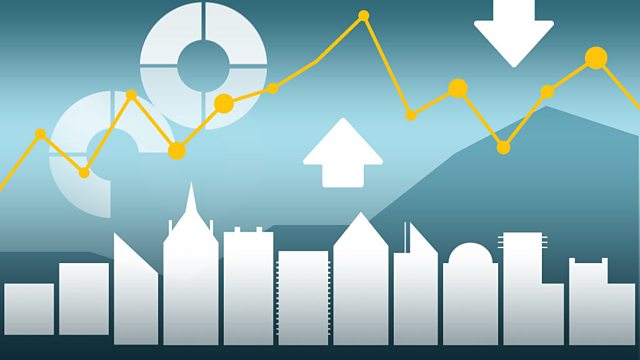
Madness and brain dysfunction
Business Weekly is about madness, and brain dysfunction, in banks, bankers and bloggers.
Are we now starting to get past the madness which has possessed the global financial system.
Business Weekly is about madness, collective and personal - and brain dysfunction, in banks, bankers and bloggers.
The big question this past week is whether we are now - just - starting to get past the madness which has possessed the global financial system. Is there some sort of order emerging? The authorities in America stress-tested the big banks to see how they would fare if the recession got much, much worse.
The bad news is that ten of America's largest banks need between them another 75 billion dollars to weather the hypothetical ultra-bad-case scenario in which they were assessed.
The good news? This might signal the end of the initial phase of the global economic shock - which was all about the incredible shrinking banking system, the collapse of individual banks and the seizing up of financial markets.
But how rigorous were the tests? Some experts are worried that they didn't go far enough. We asked Irwin Collier, economics professor at Berlin's Free University, were the tests too easy?
One of the amazing things about this great global crisis, it seems to me, is the human dimension. What exactly was motivating those bankers and traders as they spun out of control in the hysteria before the crash?
There was hubris among the masters of the financial universe whose nemesis then brought their world crashing down around them and us. There's a bit of Shakespeare here, or Greek tragedy or even Wagner.
To get an idea of the heightened atmosphere when it really did seem as if markets could only go up, I turned to Tetsuya Ishikawa, a trader at the time with Morgan Stanley in London and now out of a job. He's written a memoir called "How I Caused the Credit Crunch" - hyperbole, of course, but we asked him first what he meant by it.
So let's have a look at how that individual tale of collective irrationality might have a bearing on broad economics. The common perception - indeed the general assumption made in economics - is man - by which we mean man and woman - is economic man, economically rational man.
Not so, according to a very bright economist from MIT and now Duke University in North Carolina who's done a raft of experiments involving real people to see how they actually behave in particular circumstances.
Dan Ariely discovered, for example, that some people will do things for no payment that they refuse to do when there's a small payment on offer - not the way the economic text-books tell you it's meant to be.
Dan's discipline is called "behavioural economics" and it's the bright new thing. He calls it all "predictable irrationality" and 2008 was a bumper year for the theory.
Twitter, twitter, twitter. Aren't you sick of it? The social networking site is the bright new thing and if you're not at it all the time, you're clearly some sort of dinosaur.
Basically, you sign up and keep your friends - or followers as they're called in the jargon - informed of your every movement, should you so desire and should they so desire, which we suspect is more of an issue.
Anyway, is it over-hyped? I like to think, the true mark of a good techie is in knowing when a new technology is not as good as the old one. And on Twitter, our regular technology commentator, Jeremy Wagstaff, is beginning to have his doubts.
Last on
More episodes
Previous
Next
Broadcasts
- Fri 8 May 2009 22:32GMTΒι¶ΉΤΌΕΔ World Service Online
- Sat 9 May 2009 09:32GMTΒι¶ΉΤΌΕΔ World Service Online
- Sun 10 May 2009 04:32GMTΒι¶ΉΤΌΕΔ World Service Online
- Sun 10 May 2009 17:32GMTΒι¶ΉΤΌΕΔ World Service Online
